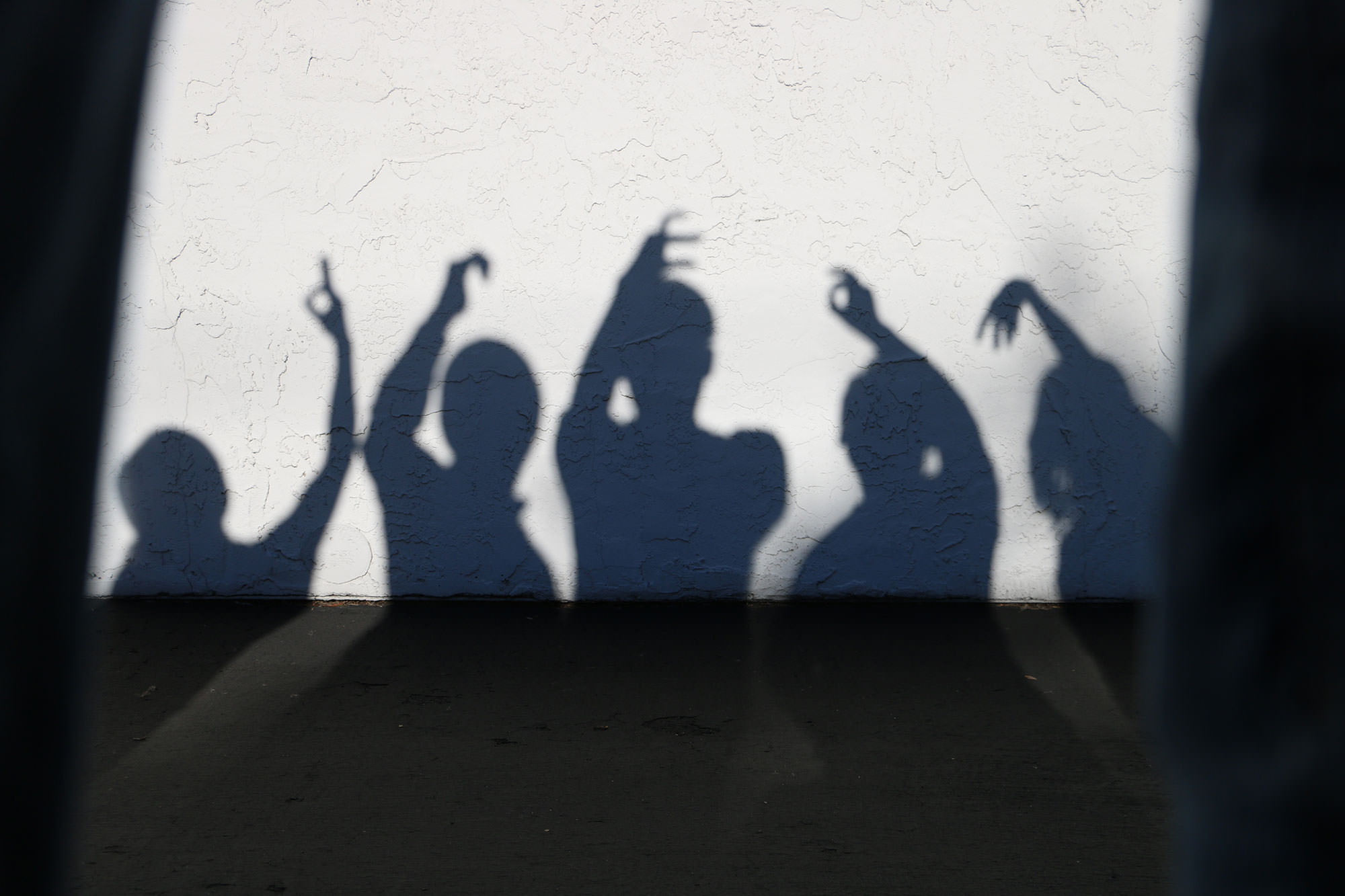
“I want you all to know that you are now in an arrestable situation ... ”
These are the words I and 30 others were told by an NAACP lawyer as we attempted to block an entrance to one of the terminals in the Seattle-Tacoma International Airport. I was there with fellow organizers, activists, and seminarians to protest the airport’s process of detaining specific travelers of color as a result of Donald Trump’s executive order on immigration.
We stood tightly alongside one another with arms interwoven, preventing travelers from being able to both leave and enter the airport. Travelers attempted to break through our human barricade, but quickly realized that we were unwilling to accommodate their requests until airport officials had released the detainees that had gone largely unnamed. The travelers walked away from our terminal, often times fuming from our unwillingness to negotiate with them, and subsequently moving on to try their luck at the other terminals dispersed throughout the rest of the airport.
One of the travelers who attempted to finesse their way through our barricade stood out to me because of something they were wearing. This individual was white and looked to be in their 40s. They were sporting a distinctly “pink pussy” hat — the kind worn by participants at the women’s march. They attempted to make their way through our barricade, but we refused to let them through. Upon realizing that we had no desire to selectively choose who would go in and out of the gate, the individual began to express their frustration and anger toward us. They eventually stormed off in a visible rage.
The awkward circumstance I faced that evening at the airport presents itself as a point of reflection when thinking about the ways we approach solidarity and coalition building in a city that is as white and liberal as Seattle. It demonstrates how solidarity from white liberal allies often crumbles when it comes at the cost of their own convenience and comfort.
I believe that this neoliberal inconsistency is our reality because cross-coalition solidarity oftentimes stems from an initial assumption (or belief) that our disparate experiences of oppression and dehumxnization* are what bind us to one another. This is not only untrue, but it also leads to a hollow, unsubstantive solidarity that will routinely cave in on itself upon encountering an unwarranted experience of inconvenience at the hands of one’s own “people”.
Within my predominantly white, liberal seminary, it is not uncommon to speak about the negative implications of racism, sexism, ableism, etc. in a way that assumes a one-dimensional experience of oppression — that our experiences of alienation and dehumxnization are identical or comparable to one another.

In this way, oppression is viewed as the binding agent that allows for differently marginalized groups to stand in momentary “solidarity” with one another. An example of this is how the statement, “I have experienced that, too” is often said by white women, in reference to an experience of discrimination from a man, in order to identify and/or empathize with the countless stories of racist discrimination told by people of color. It’s a response I have personally encountered in my own classrooms, as I have shared my own stories of racialization as a Korean American who grew up in a predominantly white, suburban setting in Colorado Springs, Colorado.
While I am attuned to the reality that various forms of oppression do not function in isolation from one another, there is something to be said about how we so often draw imaginary points of connection and comparison as if we are playing a simple game of “connect the dots”. Intersectionality is not simply a recognition of the ways that race, ethnicity, ability, sexuality, etc. articulate themselves simultaneously through our bodily interactions with others. It is a recognition that all of these factors work on our bodies in variably dense and saturated ways based on our social contexts. Critical race theory scholar Kimberle Crenshaw’s originating use of the term “intersectionality” remains relevant today.
In light of this, to view oppression as our commonality is to carelessly look over the ways that it functions as a cascading force with overlapping levels and a multitude of elements. Latinx theologian Marcella Althaus Reid names this in her book, “Indecent Theology”. In our postmodern context, the temptation to flatten and one-dimensionalize our conceptions of identity is largely unhelpful. The Marxist categorizations of “purely oppressed” and “merely oppressive” do not account for the ways that we find ourselves located in complex matrices of power.
Oppression is not, and cannot be, what ties us to one another. If our experiences of oppression are the foundation of our allyship, we risk embodying the same sort of neoliberal inconsistency that I blatantly faced at the airport that evening. Solidarity becomes reduced to a matter of selfish convenience, and a lack of shared vision leads to its eventual death.
What we share is not our sufferings, our numerous articulations of depression, nor our colonial pathologies. Rather, what we share is something much more powerful — an emancipatory desire to one day be seen as humxn in our respective and varying forms of particularities. This is what will sustain us — a vision of humxnity that is guided by shared principles and values — a reinstated social imagination that does not seek to eliminate difference for the sake of convenience, even in the process of our own liberation.
In the last chapter of his book entitled, “The Third Reconstruction”, Reverend Dr. William J. Barber II provides a moving account of the ways that his chapter of the NAACP was able to successfully organize a caucus in a county of North Carolina that was 99 percent white and 89 percent Republican. Barber’s approach to community organizing has led to the formation of numerous “fusion coalitions”. These coalitions are guided by sets of undergirding moral and ethical values, further epitomizing what it means to embody a moral movement. The last chapter of Barber’s book reveals that solidarity between differently oppressed groups of individuals can be substantive when it is grounded in a shared set of moral and ethical values.
Reverend Barber’s ethos applies to my support for and proximity to movements such as Black Lives Matter. I, as a Korean American, do not identify with Black Lives Matter because I am able to understand the pain of Black people’s oppression and trauma through the lens of my own oppression and trauma. Rather, I identify with Black Lives Matter because their movement seeks to reinstate a social imagination that has the capability to see people who have been and continue to be dehumxnized, as humxn.
Barber is by no means the only activist, organizer, and pastor who is doing this type of constructive work, but his book offers a powerful starting point for all those who long to participate in the many social and political movements that are taking place in our contemporary moment. Neoliberal inconsistencies are the demise of coalition work, and Barber provides us with a necessary and timely framework for working toward a sustainable and intersectional movement.
* “x” has been used in lieu of genderizing language.

Michael Won is a seminary student at Seattle Pacific University. He completed his bachelors degree in community psychology at the University of Washington, and he is now working toward his masters in theology. Michael believes in the power of grassroots organizing, and has worked alongside numerous community organizers and advocates within the Seattle area. His interests lie in postcolonial discourse, and he believes in theology’s capacity to bring holistic liberation to all peoples.

Michelle Kwon is driven by the need to create thought-provoking images. She tries to better understand humanity through books, conversations, and traveling on her two small feet. For more, visit her website at michkwon.com or follow her Instagram @agentlegraph.